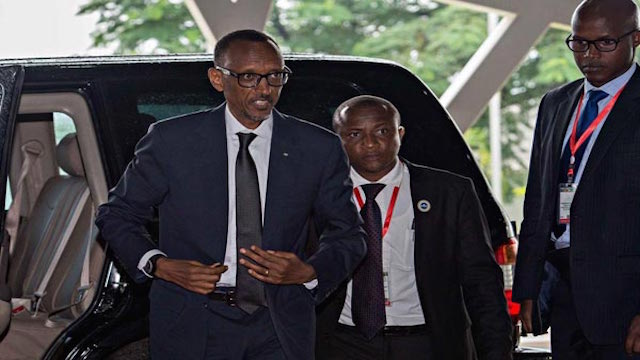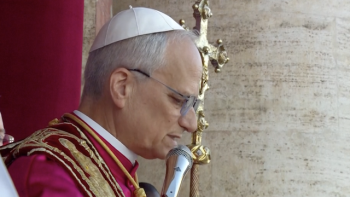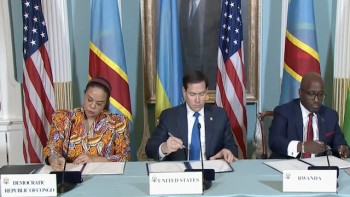“the Arusha Agreement, which was carefully negotiated and accepted by most parties and sectors of Burundian society, brought an end to years of tragic civil war and established the foundation for Burundi’s post-conflict recovery...President Nkurunziza’s decision to disregard the term limit provision of the Arusha Agreement has destabilized Burundi and the sub-region, triggered violence, and endangered Burundi’s economic well-being.” It is in these unequivocal terms that the US State Department expressed the open position of the US Government to the attempts by Burundian President Pierre Nkurunziza to change the constitution of his counrty, to allow himself to run for a forbidden third term.
Attempts to change the Constitution have led to massive bloody protests, a failed coup, and scores of killed. A low level insurgency is feared as
protesters from the opposition and the civil society continue to have violent clashes with Burundi security forces. The violence has also led to thousands of people fleeing to neighboring countries, mostly Rwanda and the Democratic Republic of the Congo (DRC). The Burundian President Pierre Nkurinziza has accused the Rwandan Government of fueling protests in Burundi and backing the failed coup (see here).
On his side, Rwandan President General Paul Kagame has criticized the Burunsian President for seeking to remain in power against the will of the Burundian people. General Paul Kagame has also called the Burundian President a moron, in a meeting with his advisers, following a trip by Nkurunziza to the Southern Rwandan town of Butare to seek his advice on how to deal with the protests.
President Nkurunziza has been arguing that his first term in office does not count, because he was appointed by the Burundian Parliament, instead of being chosen though popular elections. His position has been rejected by several countries, especially in the West, whereas some African dictators have sided with him.
A recent meeting by the East African Community has called for a postponement of the elections in Burundi and dialogue between the opposing parties. "The United States echoes the East African Community’s calls for a postponement of the elections in Burundi, urges all parties in Burundi to cease violence and exercise restraint, and calls for the urgent disarmament of all armed youth groups allied to political parties. The government’s troubling actions to severely restrict political space and press freedoms, violently disrupt political protests, pressure the Constitutional Court and Electoral Commission, and reported use of an armed ruling-party youth militia to intimidate protestors and political opponents contradicts the basic principles of democratic governance and starkly contradicts President Nkurunziza’s claim that he is dedicated to respecting the Arusha Agreement and the rule of law,” The US State Department said.
US Government Against Similar Attempts to Change the Constitution in the Neighboring Rwanda
While the US State Department was strongly rejecting the attemps by the Burundian President to change the constitution, a similar call was directed to on going similar attemps to change the Constitution in the neighboring country of Rwanda. In Rwanda, General Paul Kagame's close aides and security services have quietly launched a campaign of covert actions to force the population to sign petitions imploring the change of the Rwandan Constitution, to allow General Paul Kagame to run for a forbidden third term. A total of two million people, representing around 17 percent of the population have supposedly signed such petitions demanding that Kagame be allowed to stay in office for the third term, even for life, according to Rwandan parliament speaker Donatilla Mukabalisa
Following an inquiry by US based media, especially the Black Star News (see here), Rodney D. Ford, spokesperson for the US State Department's Bureau of African affairs said that the US Government condemns such attemps by the Rwandan President. Rodney Ford said that "President Kagame is currently serving his second seven-year term in office, having run previously in 2003 and 2010, after winning his first election for president in 2000. The next presidential election is scheduled for 2017. The current Rwandan constitution provides a two-term limit... We are committed to support a peaceful, democratic transition in 2017 to a new leader elected by the Rwandan people."
Based on these statements, many wonder how the US State Government will react if the two presidents go ahead anyway and have the constitution of their respective countries changed.

















